|
|
Most Afro-Caribbean peoples come to USA as immigrants seeking economic opportunity, but like New World Immigrants, Afro-Caribbean immigrants to the United States find their identities in-between or mixed in terms of immigrant v. minority:
How do Afro-Caribbean immigrants vary from the immigrant story or identity?
![]() New-World homelands aren't as far away as those of "model
minority immigrants" like Jews and Asian Americans
New-World homelands aren't as far away as those of "model
minority immigrants" like Jews and Asian Americans
![]() Like other
New World Immigrants,
Afro-Caribbeans
may move back and forth between home country and USA with some frequency.
Like other
New World Immigrants,
Afro-Caribbeans
may move back and forth between home country and USA with some frequency.
![]() Marshall, "To Da-Duh"
opens by referring to the "ship that had brought us from New York" (351).
Marshall, "To Da-Duh"
opens by referring to the "ship that had brought us from New York" (351).
![]() Improving communications and transportation may mean less
commitment to new country, more connections to old country > a bi-cultural
status?
Improving communications and transportation may mean less
commitment to new country, more connections to old country > a bi-cultural
status?
Such continuing relations complicate the "assimilation" model—in other words, if you remain faithful or continue to identify with your home country, you're not assimilating according to the ideal immigrant model.
Afro-Caribbean peoples as minorities?
![]() As with African Americans
and unlike most immigrants, Afro-Caribbeans' first contact
with the New World was involuntary
through slave ships,
followed by slavery's lack of economic opportunity.
As with African Americans
and unlike most immigrants, Afro-Caribbeans' first contact
with the New World was involuntary
through slave ships,
followed by slavery's lack of economic opportunity.
![]() Afro-Caribbeans have a somewhat different history from
African Americans (more below), but they share African descent and appearance.
Therefore, even though they may think of themselves as
immigrants, native-born
Americans will often think of them as members of the black minority as a result
of the "color
code" associating white or light with the
dominant culture and black or dark with
minority
culture.
Afro-Caribbeans have a somewhat different history from
African Americans (more below), but they share African descent and appearance.
Therefore, even though they may think of themselves as
immigrants, native-born
Americans will often think of them as members of the black minority as a result
of the "color
code" associating white or light with the
dominant culture and black or dark with
minority
culture.
For instance, most people don't think of Colin Powell as the son of immigrants but as an "African American," even though his status as a Republican General of African descent should warn that he crosses many assumed categories.
In brief, Afro-Caribbeans may follow the immigrant path, but they may feel pressure from whites and blacks and others to conform to the minority tradition.
By becoming associated with African Americans rather than with, say, Italian Americans or Irish Americans or Chinese Americans or Hispanic Americans, Afro-Caribbeans mix two stories: the immigrant story and the minority story.
Why? Well, here we get out of history and narrative and face the wild card of race or the color code.
Afro-Caribbean immigrants to the USA (and their descendants) are often grouped with African Americans on the basis of appearance, but their historical experience may resemble that of other immigrants to the United States rather than that of African Americans, who did not immigrate.
Compare
Colin Powell (parents from Jamaica)
Louis Farrakhan of Black Muslims (mother from St. Kitts)
20th century leaders like Marcus Garvey (Jamaica)
Harlem Renaissance poet Claude McKay (1889-1948) (b. Jamaica)
20th century entertainers like Harry Belafonte (childhood in Jamaica) and Sidney Poitier (the Bahamas).
Also, Malcolm X's mother was from the West Indies.
NBA great Tim Duncan of San Antonio Spurs from U. S. Virgin Islands

Afro-Caribbean peoples as immigrants?
Immigration has been ongoing between black Caribbean nations and USA for at least a century.
Some prominent people in United States Black History are of Caribbean descent:
Marcus Garvey (1887-1940), "Pan-Africa" political and economic leader in New York City in 1910s-20s was Jamaican.
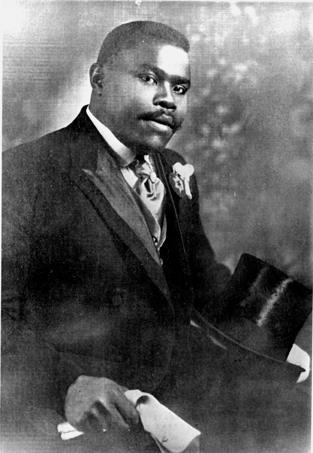
Paule Marshall, "Poets in the Kitchen" p. 84 "If FDR was their hero, Marcus Garvey was their God. The name of the fiery, Jamaican-born black nationalist of the twenties was constantly invoked around the table. For he had been their leader when they first came to the United States from the West Indies shortly after World War I.
Poetry by Claude McKay (1890-1948) from Jamaica is usually regarded as initiating the "Harlem Renaissance" of African American Literature in the 1910s and 20s.
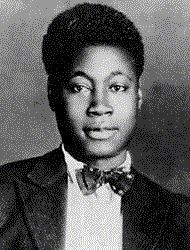
20th century entertainers like Harry Belafonte (childhood in Jamaica) and Sidney Poitier (the Bahamas).
Colin Powell (parents from Jamaica)
Louis Farrakhan of Black Muslims (mother from St. Kitts)
Also, Malcolm X's mother was from the West Indies.
Tim Duncan of the San Antonio Spurs is from St. Croix, U. S. Virgin Islands (constantly praised for his "quietness" and his "work ethic"--begins to sound like a "model minority" or immigrant values)
Adonal Foyle, basketball player for Golden State Warriors, b. 1975 on Caribbean Islands of St. Vincent and the Grenadines.
Point: Afro-Caribbean immigrants sometimes make a leading contribution to American and African American cultures--possible that this leadership comes from different historical background
Summary of Afro-Caribbean peoples as immigrants: Most of these people of the Caribbean came to USA as immigrants seeking economic opportunity--therefore fit the immigrant narrative as far as that goes.
But, like other New World immigrants, they're in-between or mixed in terms of immigrant / minority narrative . . .
How do Afro-Caribbean immigrants vary from the immigrant narrative?
Afro-Caribbeans may move back and forth between home country and USA with some frequency.
Improving communications and transportation may mean less commitment to new country, more connections to old country > a bi-cultural status?
Marshall, "To Da-Duh"
351 ship that had brought us from New York
So that's somewhat in-between, or at least diffident toward the "assimilation" model--in other words, if you remain faithful to or identify with your home country, you're not assimilating according to the original immigrant model.
New-World homelands aren't as far away as those of "model minorities" like Jews and Asian Americans
Afro-Caribbean peoples as minorities?
As with African Americans, Afro-Caribbeans' first contact with the New World was through the involuntary contact of the slave ships, followed by slavery's lack of economic opportunity.
Afro-Caribbeans have a somewhat different history from African Americans (more below), but they share African descent and appearance. Therefore, even though they may think of themselves as immigrants, native-born Americans will often think of them as members of the black minority > "color code"
For instance, most people don't think of Colin Powell as the son of immigrants but as an "African American," even though his status as a Republican General of African descent should warn that he crosses many assumed categories.
In brief, Afro-Caribbeans may follow the immigrant path, but they may feel pressure from whites and blacks and others to conform to the minority tradition.
By becoming associated with African Americans rather than with, say, Italian Americans or Irish Americans or Chinese Americans or Hispanic Americans, Afro-Caribbeans mix two stories: the immigrant story and the minority story.
Why? Well, here we get out of history and narrative and face the wild card of race or the color code.

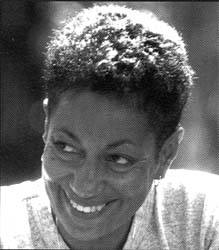
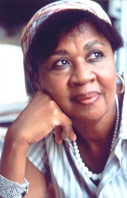
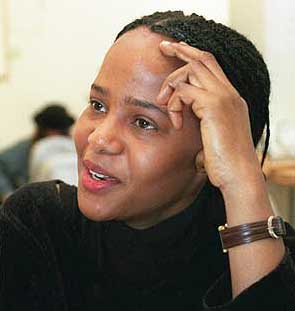
Afro-Caribbean Women Writers: Paule Marshall, June Jordan, Jamaica Kincaid, Edwidge Dandicat
